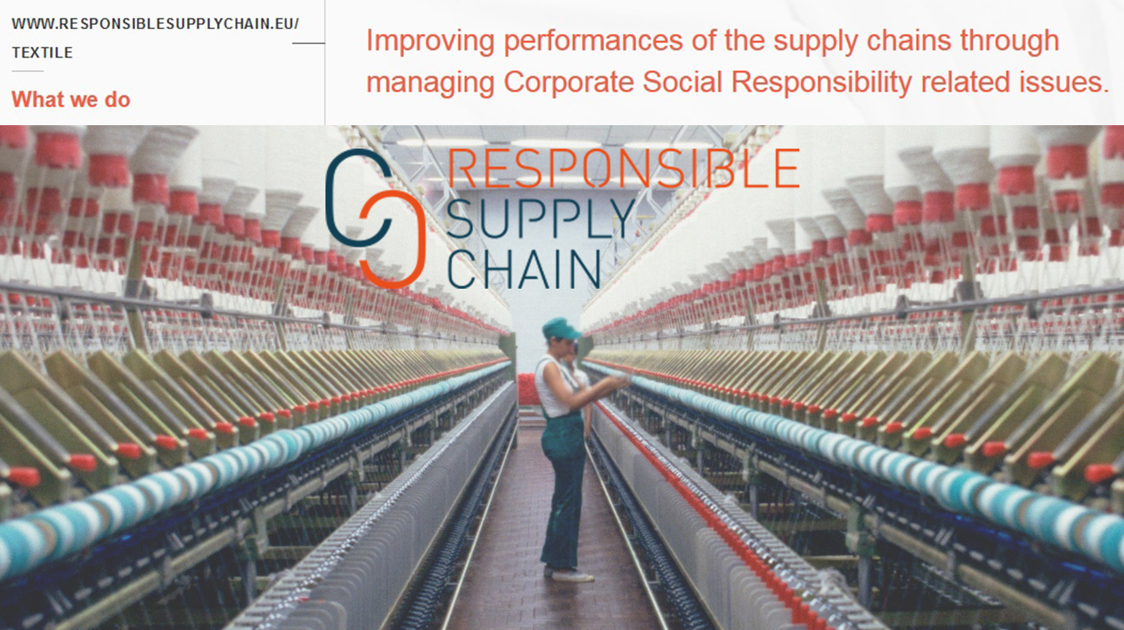CSR is not a Public Relations item... It is a matter of doing the right thing.
Luc Triangle, General Secretary of industriAll Europe, considers this tool a breakthrough. "We are not yet adding another CSR label to a list that already is too long. We are the first to provide a practical tool, with which workers and management can analyse their situation and prevent the risks that matter most to them and to their customers", he stated. "CSR is not a Public Relations item, nor is it a selling argument. It is a matter of doing the right thing. It must become part of every company's DNA. Too often CSR is based on window-dressing activities such as voluntary commitments or companies’ codes of conduct. We must move away from this and make companies aware that CSR is just part of doing business right. For themselves and for the companies in their own supply chain".
The CSR Risk Assessment Tool, available at the URL http://responsiblesupplychain.eu/textile was developed by consultant Spin360, with financing from the EU Commission, DG Employment, Social Affairs and inclusion, under the "Support to Social Dialogue" budget line. Designed to be easy to use by SMEs, and developed according to a set of internationally recognised standards on risk management, it takes into consideration the specificities of the Textile & Clothing sector.
During the final conference, held at the European Economic & Social Committee, companies that had tested the CSR Risk Assessment Tool, and Non-Governmental Organisations (NGOs) whose programmes and / or certification schemes are included in it, gave testimonials of what it meant to them. For companies, CSR must become a standard that they apply themselves, and that they impose within their own supply chain. For NGOs, trade unions are the guarantee that social rights are taken seriously.
Luc Triangle and Francesco Marchi, General Director of Euratex, recalled the determining contribution of social dialogue in the design of the CSR Risk Assessment Tool, and in enhancing its credibility. In order to be as effective as possible, it is important that both companies and trade unions use the tool at company level. Social dialogue at company level is key for proper implementation of the tool.
They called for its broad adoption throughout the European Textile & Clothing sector, including by brands and retailers. The responsibility of brands and retailers to use a sustainable supply chain in the textile and garment sector is huge. They must take responsibility to improve unacceptable practices.
